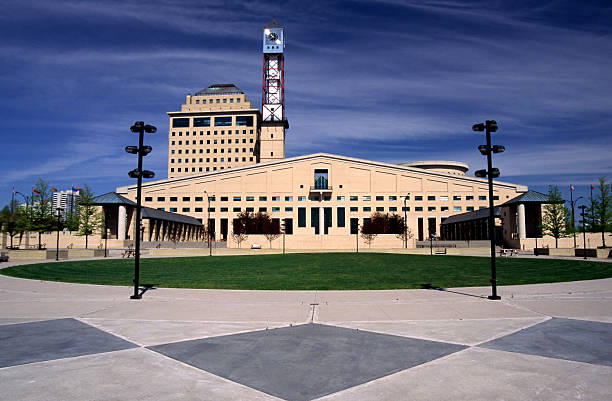
“Mississauga City Hall on a sunny day. Mississauga, Ontario, Canada.”
Mississauga, one of the largest cities in the Greater Toronto Area (GTA), continues to be an attractive destination for homebuyers, investors, and families looking for a blend of urban convenience and suburban tranquility. As 2025 progresses, Mississauga’s real estate market remains a hot topic. Whether you’re a first-time buyer or a seasoned investor, understanding the average home price in Mississauga is key to navigating this competitive market.
In this blog, we’ll take a closer look at the current trends in home prices, what factors are influencing these prices, and what you can expect in the coming months.
The Current State of the Mississauga Real Estate Market:
As of early 2025, Mississauga continues to experience growth in its real estate market, though at a somewhat slower pace compared to the explosive boom seen in the past few years. The average home price in Mississauga has seen steady increases, influenced by a number of factors such as limited supply, increased demand, and the ongoing evolution of the city as a key urban hub in the GTA.
According to recent data from the Toronto Regional Real Estate Board (TRREB), the average price of a home in Mississauga currently stands at $1,200,000. This is a significant number, and while it may seem high, it reflects the premium nature of homes in the area, which boasts a mix of luxury properties, family-oriented suburban neighborhoods, and newly developed urban condos.
Types of Homes in Mississauga and Their Price Ranges:
When we talk about the “average home price,” it’s important to consider the different types of properties in Mississauga, as they can vary greatly in price. Here’s a breakdown:
-
Detached Homes:
- The most expensive type of property in Mississauga, detached homes offer privacy and more space, which is highly valued by families and those seeking more room. The average price for a detached home in Mississauga is around $1.6 million as of early 2025.
- Popular neighborhoods with detached homes include Lorne Park, Sheridan, and East Credit.
-
Semi-Detached Homes:
- These homes offer a more affordable option compared to fully detached properties but still provide a significant amount of space. The average price of a semi-detached home in Mississauga is around $1.1 million.
- These properties are ideal for those seeking a balance between cost and space. Areas like Cooksville and Erin Mills are well-known for their semi-detached homes.
-
Townhouses:
- Townhouses are a popular choice for first-time homebuyers or smaller families. The average price for a townhouse in Mississauga hovers around $900,000.
- Townhouses in areas like City Centre, Meadowvale, and Port Credit provide proximity to amenities while still offering more affordable entry points into the market.
-
Condominiums:
- With Mississauga’s increasing urbanization, condos have become an essential part of the landscape. The average price for a condominium in the city is approximately $650,000.
- Condo prices vary widely depending on their location, size, and building amenities. Popular condo hotspots include Square One, City Centre, and Sheridan Homelands.
What’s Driving Home Prices in Mississauga?
Several key factors continue to shape the real estate landscape in Mississauga, pushing home prices upward:
-
Limited Inventory:
- Like many parts of the GTA, Mississauga is facing a shortage of available properties for sale. With fewer homes on the market, demand continues to exceed supply, driving up prices.
-
High Demand from Immigrants and Families:
- Mississauga’s diverse communities, excellent schools, and proximity to Toronto make it a desirable location for immigrants, professionals, and growing families. This influx of people fuels demand for both detached homes and condos.
-
Proximity to Toronto:
- The city’s proximity to Toronto makes it an attractive option for those looking for a quieter, more suburban lifestyle without sacrificing access to urban amenities. Many people choose to live in Mississauga because of its excellent transportation links, including the Go Train, Mississauga Transit, and easy access to major highways.
-
Government Policies and Development:
- Ongoing investments in infrastructure and government incentives aimed at boosting homeownership are helping to sustain the demand. Additionally, developers continue to build new communities, offering modern homes and amenities that appeal to a wide range of buyers.
Future Trends and Expectations:
So, what’s next for Mississauga’s real estate market in 2025 and beyond? Here are some predictions:
-
Continued Growth in Condos:
- With the city becoming more urbanized, condo prices are expected to continue to rise, especially in areas near Square One and City Centre. As more young professionals and empty-nesters seek housing options, demand for smaller, low-maintenance living spaces will remain strong.
-
Price Stabilization for Detached Homes:
- While detached homes in Mississauga will continue to hold value, the rapid price increases of the past few years may slow down. It’s expected that prices may stabilize due to the higher interest rates making it harder for buyers to qualify for large mortgages.
-
Gentrification in Some Neighborhoods:
- Areas like Cooksville, Port Credit, and Erin Mills will likely see ongoing revitalization, which could increase property values as these neighborhoods attract more attention from investors and homebuyers.
Conclusion:
Mississauga’s real estate market offers a variety of opportunities for buyers, ranging from high-end detached homes to more affordable condos and townhouses. The average home price in the city may seem high at first glance, but it reflects the high demand and limited supply in one of the most sought-after regions in the GTA.
As 2025 unfolds, homebuyers and investors should be prepared for a competitive market, but with careful research and strategic decisions, Mississauga remains a fantastic place to invest in property, raise a family, or enjoy urban suburban living.
If you’re planning to buy or sell in Mississauga, it’s essential to stay informed about market conditions and trends. Keep an eye on local listings, work with experienced real estate professionals, and make sure you’re well-equipped to make the best decision for your goals.
Disclaimer: Home prices are subject to change. Always consult a local real estate professional for the most up-to-date information.
Blog by Afifa B

 Facebook
Facebook
 X
X
 Pinterest
Pinterest
 Copy Link
Copy Link

